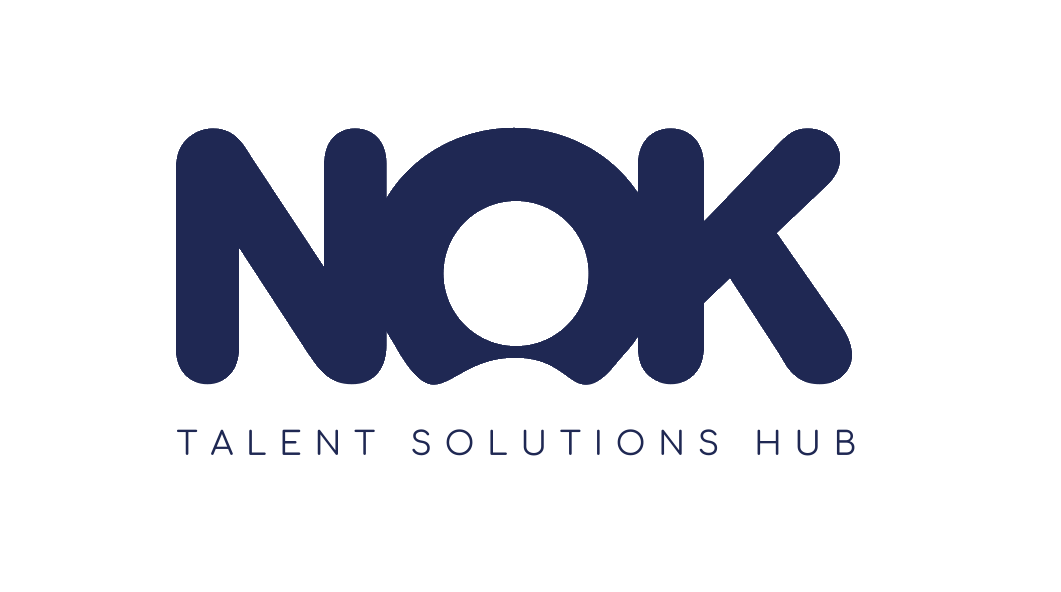Bridging the Skills Gap Through Tailored Training Programs
Introduction The modern workforce faces a critical challenge: the skills gap. As industries evolve and technology advances, many employees find themselves unequipped to meet the demands of their roles. For organizations, this gap can lead to decreased productivity, innovation stagnation, and high turnover rates. At NOK Human Capital, we understand the importance of continuous learning and development to bridge this gap and empower teams for success.
In this blog, we explore how tailored training programs can transform your workforce and how NOK HC is leading the way with customized solutions.
The Growing Skills Gap: A Challenge for Businesses The skills gap isn’t just a buzzword; it’s a pressing issue for businesses across the globe. According to a recent study, 87% of companies report struggling to fill positions due to a lack of qualified candidates. Factors contributing to the gap include:
- Rapid Technological Advancements: Automation, AI, and other technologies are reshaping job requirements, leaving employees struggling to keep up.
- Evolving Industry Needs: Industries such as healthcare, IT, and manufacturing require specialized skills that are often not part of traditional education or training programs.
- Limited Access to Professional Development: Many employees lack opportunities for upskilling or reskilling, making it difficult to adapt to new roles.
NOK HC’s Approach to Bridging the Skills Gap At NOK HC, we believe that targeted training is the key to addressing workforce challenges. Here’s how we’re making a difference:
- Comprehensive Training Needs Analysis (TNA):
- We start by identifying specific areas of improvement within your workforce.
- Our TNA process ensures that training programs are tailored to address real challenges and maximize ROI.
- Customized Training Programs:
- Soft skills: Communication, teamwork, and leadership development.
- Industry-specific training: Contact center operations, technical skills, and compliance.
- Management training: Preparing future leaders with essential tools for success.
- Blending Theory with Practice:
- Our programs emphasize practical application, ensuring employees can translate knowledge into tangible results.
- Certified Trainers with Global Expertise:
- Our trainers bring decades of multinational experience, delivering programs that meet international standards.
Why Tailored Training Programs Matter Investing in customized training programs offers significant benefits for businesses and employees alike:
- Increased Productivity: Employees equipped with the right skills perform tasks more efficiently and effectively.
- Higher Retention Rates: Providing development opportunities shows employees they are valued, reducing turnover.
- Improved Morale and Engagement: Training fosters a culture of growth and innovation, keeping employees motivated.
- Competitive Advantage: Organizations with well-trained teams are better positioned to adapt to industry changes and outperform competitors.
Success Stories: NOK HC’s Impact One of our clients, a leading telecommunications company, faced high attrition rates due to inadequate training. With NOK HC’s tailored programs:
- Employee retention improved by 40%.
- Productivity increased by 25% within six months.
- Customer satisfaction ratings saw a 15% boost due to improved service delivery.
Another client, a regional manufacturing firm, needed to upskill their team for new technology implementation. With NOK HC’s support:
- Over 150 employees were trained in advanced technical skills.
- The company achieved a seamless transition to the new system without delays.
- Operational efficiency rose by 30%.
The Future of Workforce Development As industries continue to evolve, the importance of training will only grow. Key trends shaping the future include:
- Emphasis on Digital Skills: Training programs will focus on AI, data analytics, and other emerging technologies.
- Microlearning: Short, targeted learning modules will become the norm for busy professionals.
- Wellness Integration: Holistic training that includes mental health and well-being will gain traction.
Conclusion Bridging the skills gap is not just about addressing current needs; it’s about preparing for the future. NOK Human Capital’s tailored training programs empower businesses and employees to thrive in an ever-changing world. By investing in learning and development, you’re not just building a better workforce—you’re building a brighter future.
Ready to unlock your team’s potential? Contact NOK HC today to learn more about our training and development solutions.
#TrainingSolutions #SkillsGap #WorkforceDevelopment #NOKHC #EmpoweringBusinesses

